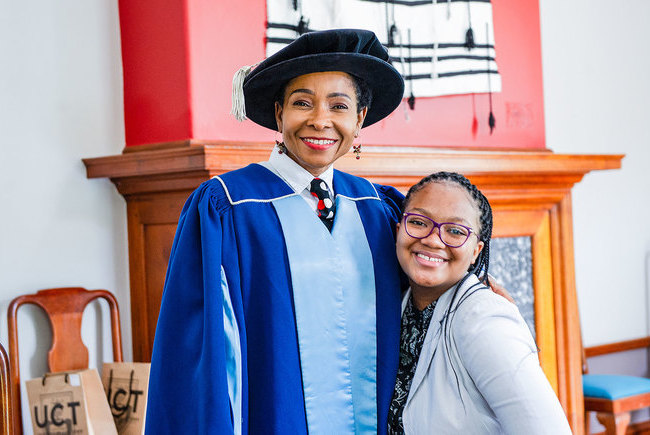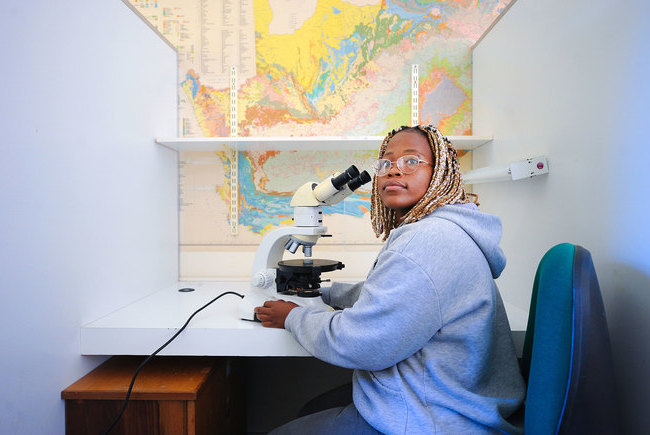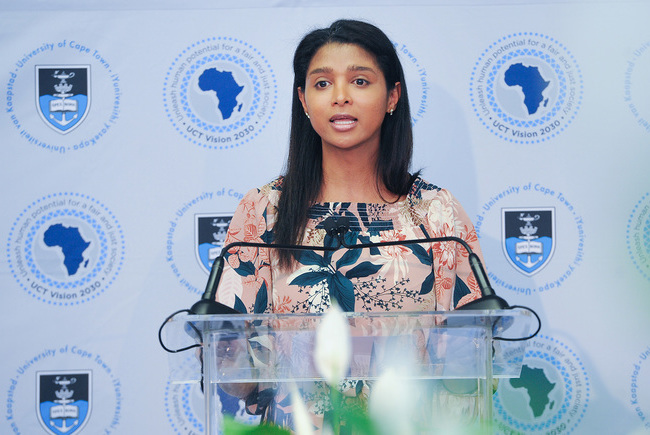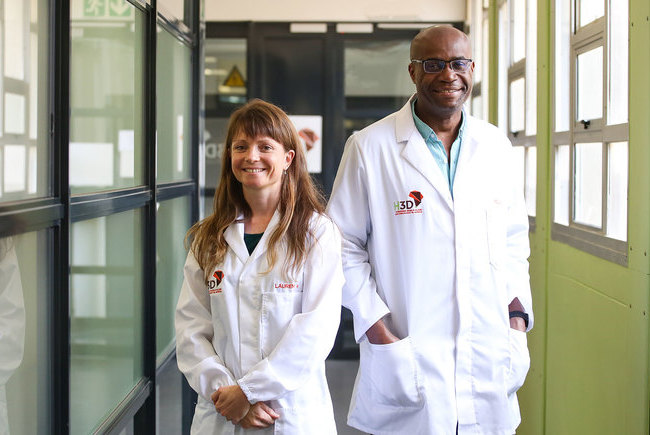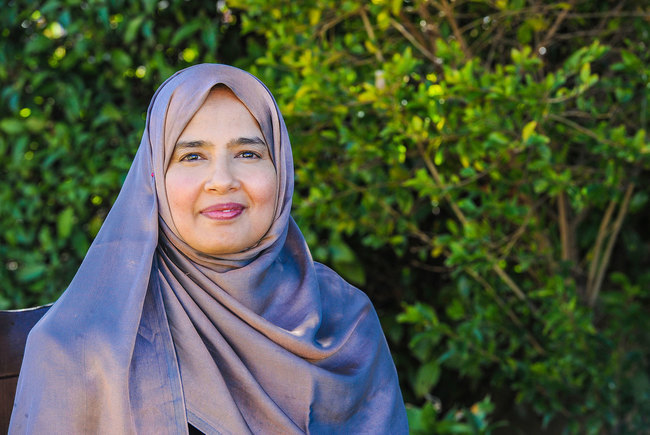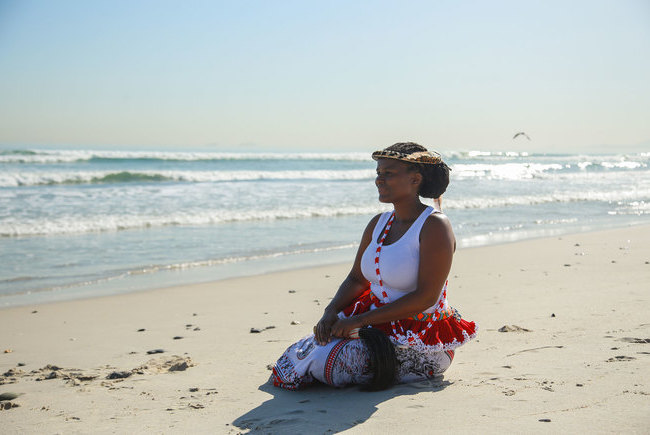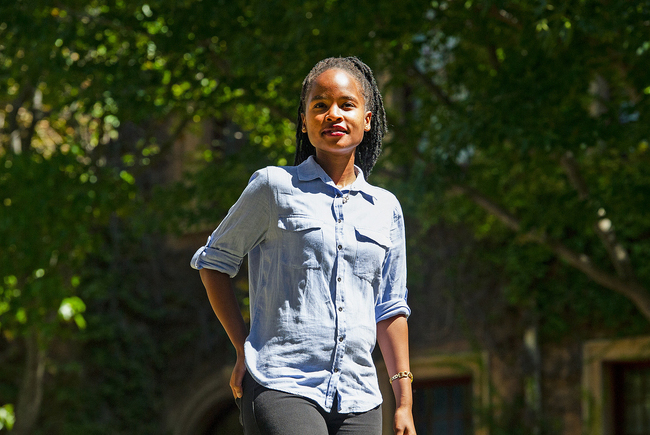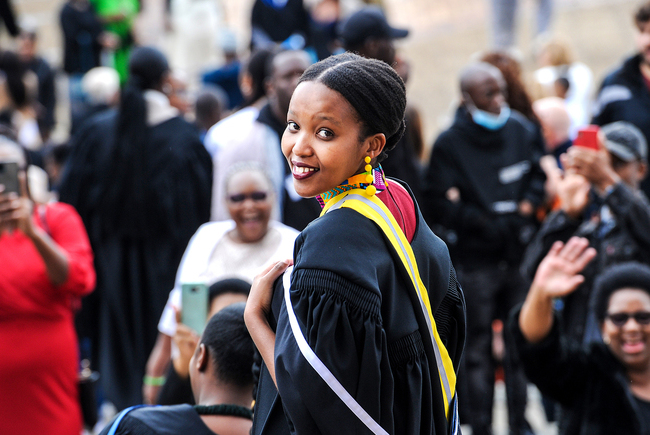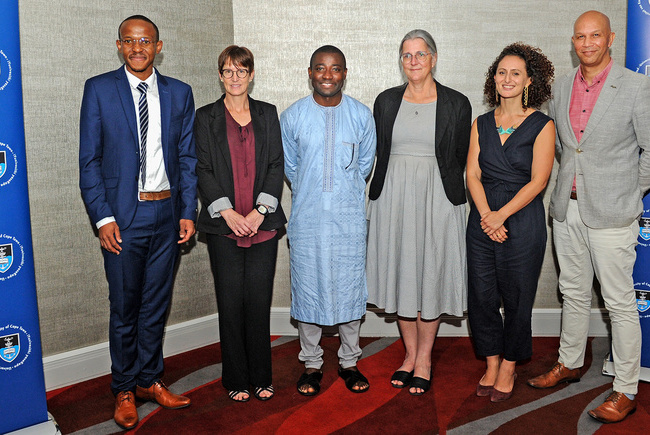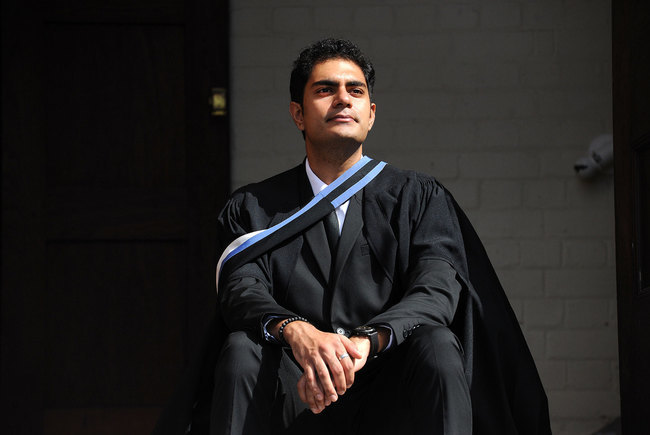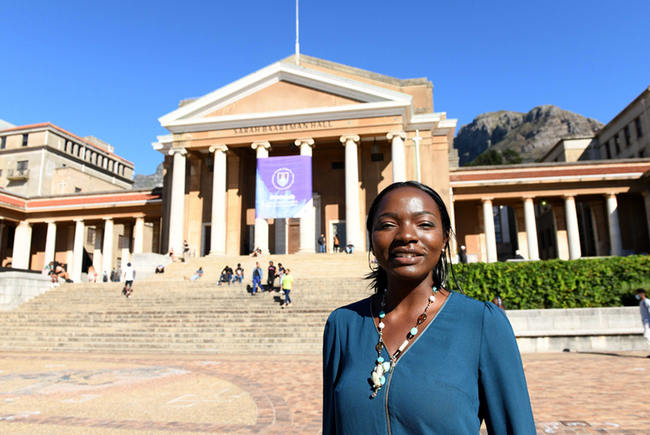‘Thinking the Future’: Clem Sunter presents 2022 in a nutshell
20 January 2022 | Story Niémah Davids. Photo Gallo Images. Read time 9 min.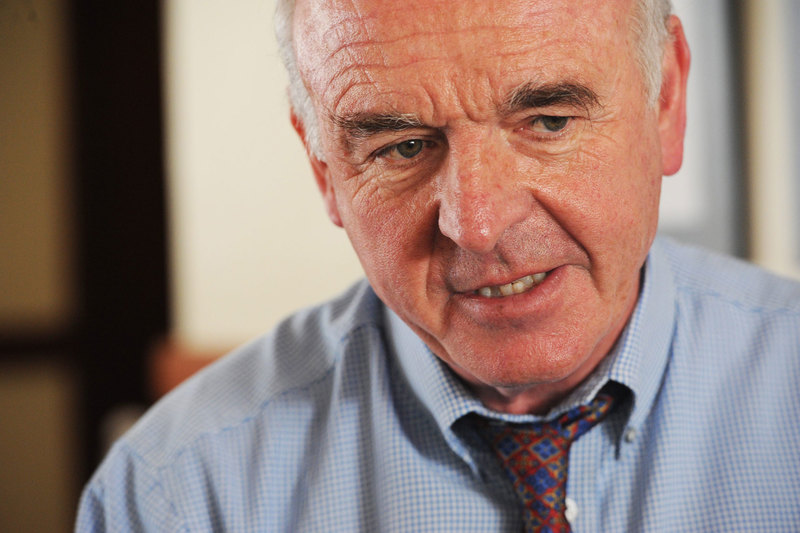
“The essence of thinking the future is to understand the pattern of forces propelling the present into the future and to see where those forces can lead.”
This was according to futurologist and scenario planner Clem Sunter, who delivered a University of Cape Town (UCT) Summer School lecture on the book he co-authored with Mitch Ilbury, Thinking the Future: New perspectives from the shoulders of giants, that was published in July 2021.
“When you’re thinking the future, you’ve actually got to look around you. It’s not just about having great thoughts from within about what can happen; it’s really trying to observe what’s going on around you and projecting that into the future,” Sunter said.
During the afternoon session, and using tips from his book, the futurologist discussed several scenarios that could play itself out on the world stage in 2022.
The red flag
The red flag relates directly to China and Russia that are on a “collision course” with the United States of America.
“He started in the far east [and] he’s trying to do a similar thing in Europe, and this has real strategic consequences.”
“[US President] Joe Biden has made it very [clear] that he wants to build up an alliance of democracies against China and Russia. He started in the far east [and] he’s trying to do a similar thing in Europe, and this has real strategic consequences,” he said.
Meanwhile, Sunter said Russian president, Vladimir Putin, views the threat of the Ukraine joining the North Atlantic Treaty Organisation (NATO) as “totally unacceptable”.
NATO is an intergovernmental military alliance set up between 27 European countries, two North American countries, and one Eurasian country. But according to Sunter, Biden maintains that NATO has an “open-door policy”, and if the Ukraine wants to join “then so be it”.
“This is where the flags are going up. We are getting very worried about a possible war in the Ukraine,” Sunter said.
Yet, with the 1962 Cuban Missile Crisis, things were vastly different. The US viewed Russia planting missiles in Cuba as “too close to America for comfort” – a scenario predicted two years prior (in 1960) by the “father of scenario planning”, Herman Kahn. But what’s the common theme of the last century and this one? There are many similarities, Sunter said. For one, the First World War was followed by the Spanish flu, but if his scenario takes place, the COVID-19 pandemic would directly precede the Third World War.
“It’s an incredibly important scenario to watch. Any movement will completely change the risk profile of Europe – overnight,” he said.
The green flag
As the globe battles the colossal effects of climate change, which includes melting ice and rising seas; extreme weather conditions; threats to wildlife, flora and fauna; Sunter said the green flag calls for “cooperation between humanity”.
“[Addressing climate change] really does go against our DNA, which is all about material prosperity, growing economies and economic development.”
But the uncertainty around the green flag, Sunter said, is whether the world has tangible plans to do something about climate change.
“[Addressing climate change] really does go against our DNA, which is all about material prosperity, growing economies and economic development. And of course, the politicians all say that we can have both. If we [develop] green economies there will be lots of opportunities for entrepreneurs,” he said.
“But nobody has written the narrative, not even the politicians at the COP26 [United Nations Climate Change Conference] in Glasgow last year. They haven’t come up with any precise ways of creating a green economy.”
The pandemic flag
The COVID-19 pandemic has triggered more disruption than any other event in modern times and has plunged the world into chaos. And following the arrival of Omicron, the latest and “less lethal” COVID-19 variant, Sunter said two scenarios are at play: Omicron could signal the beginning of the end for the pandemic, as it may help the world reach herd immunity; and given the impact of the global vaccination programme, receiving a COVID-19 inoculation is likely to become the norm globally, just like flu jabs at the start of winter.
“There’s still a chance that we could see another variant appear out of nowhere. You have to handle the uncertainty.”
However, as a scenario planner, he said, he can’t rule out that another new variant, like Omicron, could raise its head and place the world on tenterhooks, or another virus could appear out of nowhere and turn the world upside down again.
“Yes, the mainstream scenario is that we quietly move from a pandemic to an endemic. But there is still a chance that we could see another variant appear out of nowhere. You have to handle uncertainty,” he said.
The inequality flag
The COVID-19 pandemic has deepened the divide between rich and poor and has exposed large disparities between the haves and haves-not. In South Africa, despite government’s economic relief measures, many small businesses have been forced to close their doors. But research indicates that the super-rich have doubled their money during this time. Much of this success, Sunter explained, has to do with the use of technological devices and digital platforms during the pandemic.
“There is a lot of anger that the world is becoming very unequal.”
“It’s been very prosperous for high-end tech companies because people have tried to handle the pandemic in a digital way. But for ordinary people this pandemic is still very depressing. It’s going to be a slow process getting out of this lockdown, and there is a lot of anger that the world is becoming very unequal,” he said.
As the globe battles to close the gap between rich and poor, Sunter also advised that we keep an eye on the inflation rate.
“If inflation really does go through the roof, interest rates will rise too and then that’s going to [be] a huge problem on world debt. At the top of every central bank’s mind will be trying to avoid another national crash like in 2008, but if the rate of inflation starts rising, they’re going to have to do something about it,” he said.
The crowded space flag
In Thinking the Future Sunter and Ilbury said: “At present, there is only one law governing outer space: the 1967 Outer Space Treaty. With all the activity now taking place in space, more laws will no doubt be in the offing, particularly since private companies are now starting to argue about their share of space. The flag also pinpoints our dependence on satellite systems to communicate with one another. What would happen if the internet went down worldwide because two satellites crashed, and the resulting debris caused widespread damage to crucial components of our international communication network?”
Since publishing the book, China has raised concerns with the United Nations that satellite systems operated by Elon Musk’s SpaceX have come too close to theirs. But no action has been taken yet.
“But who does space really belong to? There will have to be more regulation [on] what happens in space.”
“We now have short private flights into space and that appears to be a permanent feature. But who does space really belong to? There will have to be more regulation [on] what happens in space,” he said.
South Africa in a nutshell
For South Africa, more specifically, Sunter highlighted the people’s economy – a “sequel to the watershed 1994 general election”. He said the country should now make every effort to achieve economic freedom as a “necessary complement” to political freedom.
He encouraged government to work hard at creating an inclusive people’s economy with a new generation of young entrepreneurs at the helm. A good idea, he said, would be for President Cyril Ramaphosa to establish an entrepreneurship council that consists of successful entrepreneurs who regularly advise him on how best to lift the economy from the brink of ruins. Or, Sunter said, it could all lead to what they’ve termed the “cautionary tale”, where South Africans experience high popular anger that is caused by a stagnant and exclusive economy “cursed by dismally high levels of unemployment”.
“This leads to further disunity, widespread violence with a possible end point of total anarchy – and we all want to avoid that,” he said.
 This work is licensed under a Creative Commons Attribution-NoDerivatives 4.0 International License.
This work is licensed under a Creative Commons Attribution-NoDerivatives 4.0 International License.
Please view the republishing articles page for more information.
Highlights from 2022
As we look back on 2022, we celebrate some of the stories that were popular with readers of the UCT News website during the year.

The Hasso Plattner d-school Afrika at UCT hosted the prestigious d.confestival, the first design thinking event of its kind in Africa.
13 Jan 2023 - 4 min read Readers’ Choice 2022
UCT researchers were honoured for their research at the NRF awards, while others were added to the NRF’s list of A-rated scholars.
12 Jan 2023 - 9 min read Readers’ Choice 2022
UCT is one of the best places in the world for development studies, according to the subject rankings from Quacquarelli Symonds.
12 Jan 2023 - 2 min read Readers’ Choice 2022
UCT was ranked 237th in the world by the Quacquarelli Symonds university rankings.
11 Jan 2023 - 3 min read Readers’ Choice 2022
UCT’s Faculty of Science graduation walk of celebration.
11 Jan 2023 Readers’ Choice 2022
UCT’s Faculty of Humanities graduation walk of celebration.
11 Jan 2023 Readers’ Choice 2022
UCT was been ranked among the top 100 universities in five subject areas by ShanghaiRanking’s Global Ranking of Academic Subjects 2022.
09 Jan 2023 - 3 min read Readers’ Choice 2022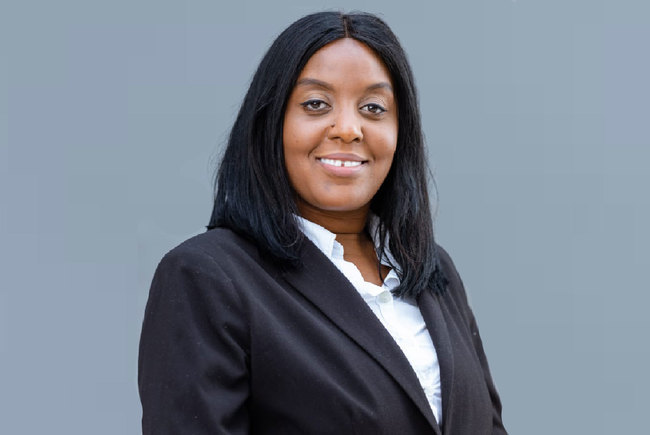
UCT doctoral student Mweete Debra Nglazi’s research showed that obesity in SA women of childbearing age is due to a lack of physical activity and increased consumption of unhealthy food.
09 Jan 2023 - 5 min read Readers’ Choice 2022
Master’s graduate Dr Joshua Fieggen was one of four UCT alumni to receive a 2023 Rhodes Scholarship.
09 Jan 2023 - 5 min read Readers’ Choice 2022
UCT researcher Dr Katherine Antel has received two international awards for work in HIV-associated lymphoma.
06 Jan 2023 - 3 min read Readers’ Choice 2022
UCT Vice-Chancellor Professor Mamokgethi Phakeng said design thinking and interdisciplinary research foster habits of collaboration, creative confidence and a trial-and-error mindset.
05 Jan 2023 - 5 min read Readers’ Choice 2022
UCT’s Forest Hill Residence launched the innovative “You Have the Drive” programme to help students acquire their driver’s licences.
05 Jan 2023 - 7 min read Readers’ Choice 2022
The 2020 and 2021 Student Leadership Awards recognised the outstanding contributions made by student leaders and organisations in an online ceremony.
04 Jan 2023 - 6 min read Readers’ Choice 2022
UCT remained the top university on the continent according to ShanghaiRanking’s 2022 Academic Ranking of World Universities.
03 Jan 2023 - 3 min read Readers’ Choice 2022
Professor Mamokgethi Phakeng lauded VC Excellence Award winners at a COVID-19-delayed event held at Glenara.
30 Dec 2022 - 4 min read Readers’ Choice 2022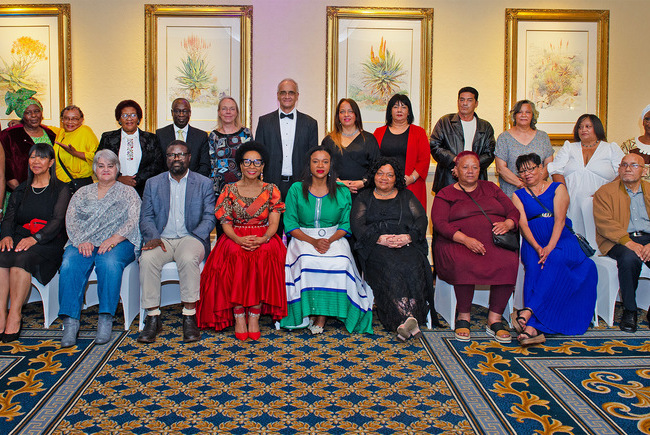
UCT leadership and staff gathered at the Table Bay Hotel on 25 October for a celebration dinner in honour of the 2022 UCT retirees.
30 Dec 2022 - 7 min read Readers’ Choice 2022
UCT is among the top 60 most international universities in the world, according to the 2022 list released by Times Higher Education.
29 Dec 2022 - 3 min read Readers’ Choice 2022
UCT’s Associate Professor Amshuda Sonday’s promotion to the professoriate took effect on 1 January 2022.
29 Dec 2022 - 6 min read Readers’ Choice 2022
Associate Professor Shannon Morreira’s promotion to the professoriate marked a full-circle moment for her academic career at UCT.
28 Dec 2022 - 8 min read Readers’ Choice 2022
Employees owe a duty of care to safeguard their colleagues from COVID-19 harm, wrote UCT’s Pierre de Vos.
28 Dec 2022 - >10 min read Readers’ Choice 2022
UCT researchers excelled among the University of Stanford’s Top 2% Scientists in the World.
23 Dec 2022 - 2 min read Readers’ Choice 2022
UCT Vice-Chancellor Professor Mamokgethi Phakeng wished the matric class of 2022 well as they wrote their final exams.
23 Dec 2022 - 3 min read Readers’ Choice 2022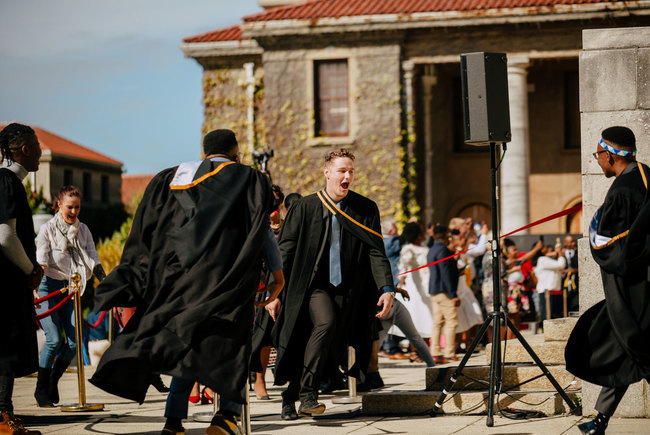
In April, UCT was ranked the best university on the African continent and 270th worldwide, according to the Center for World University Rankings.
22 Dec 2022 - 2 min read Readers’ Choice 2022
The three-day First-Year Campus Reception programme took place in the Sports Centre on upper campus.
22 Dec 2022 - 1 min read Readers’ Choice 2022
UCT soars 23 places to land at 160th globally in the latest international university rankings published by Times Higher Education.
21 Dec 2022 - 3 min read Readers’ Choice 2022
UCT’s executive said farewell to the SRC at a dinner hosted by VC Professor Mamokgethi Phakeng on 16 November.
21 Dec 2022 - 8 min read Readers’ Choice 2022







